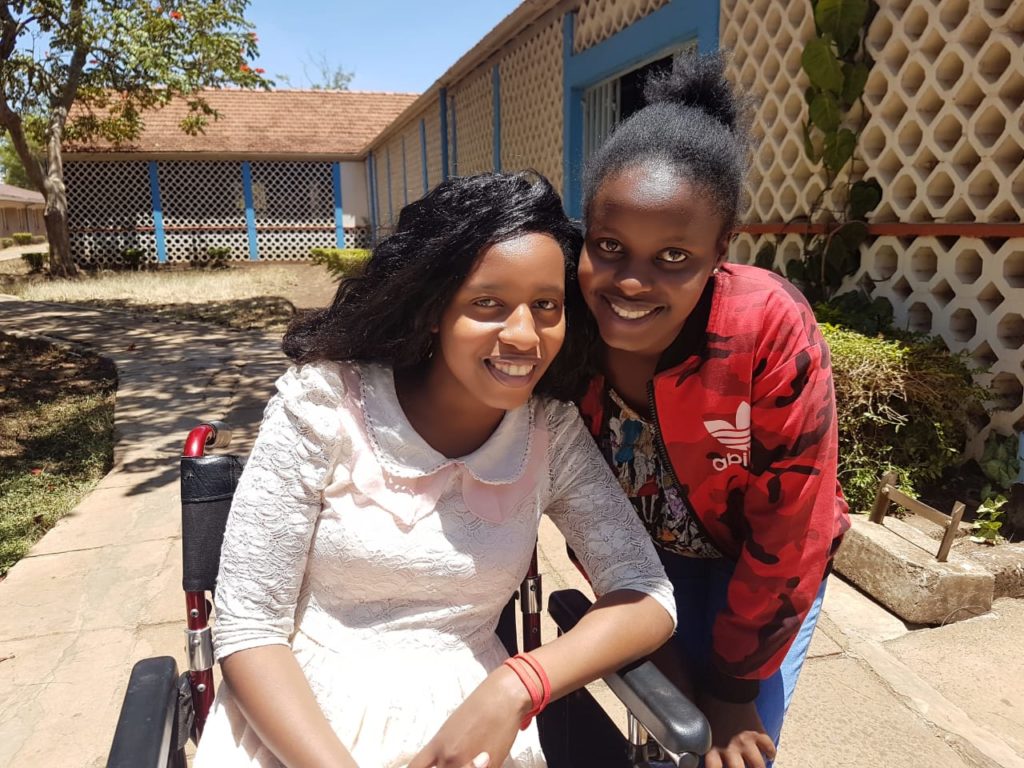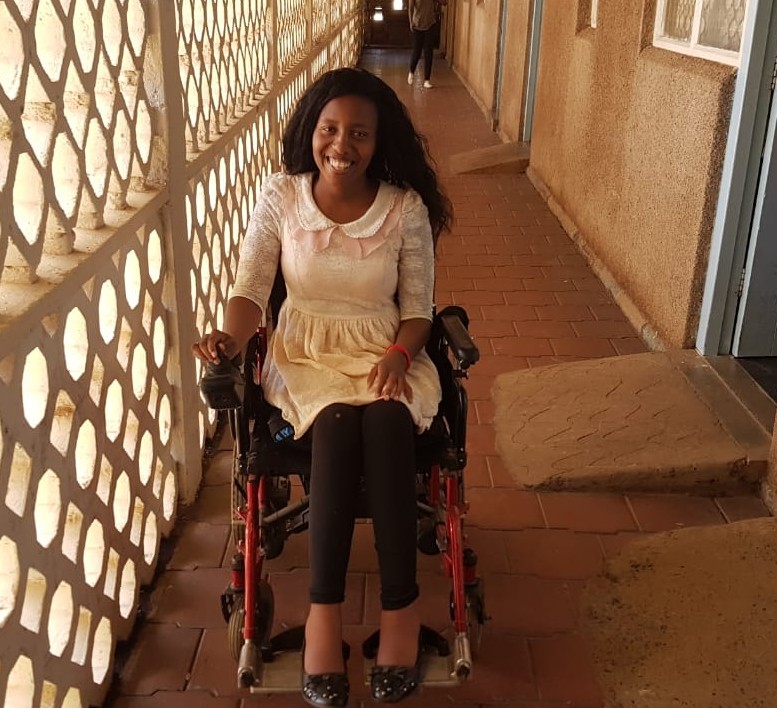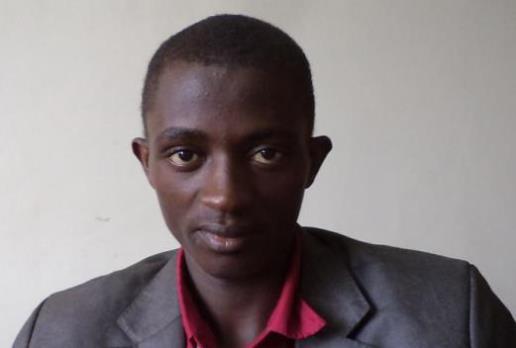
Four years ago, on the eve of Good Friday – the day on which Christians remember Jesus Christ’s crucifixion – 143 Kenyan university students were killed, singled out by Al-Shabaab gunmen for their Christian faith. Four more died after armed forces arrived, making it the deadliest terrorist incident in Kenya since the Nairobi US Embassy bombings of 1998.
Garissa University College in Kenya’s north-east, close to the Somali border, is the only university in an area that critics say has been abandoned by the central government. Following the attack, it was closed, but local activists like the Northern Advocacy Organization campaigned for its re-opening by demonstrating at the college and camping out in the same dormitories where the students were killed.
Nine months later, Garissa did re-open: one student wrote then, in the resurrection spirit of Easter: “Al-Shabaab will kill our bodies, but will never kill our spirit, we’ll rebuild and re-open as if nothing happened.”
At least one survivor, however, was not able to go back to the re-opened college with her remaining friends. Reachel (yes, unusual spelling) Ginkonyo, aged 19 in April 2015, was hit by bullets as she stood in a circle, holding hands in prayer with fellow-students. She remembers: “Those men banged the door open and were spraying bullets all around. People were screaming and crying…”
The attackers continued to fire bullets (seven in all) into Reachel, even as she lay on the ground. She remained conscious the whole time. Of the 22 in the early morning prayer meeting, only 8 survived.
The Kenyan forces only arrived around 10am; the incident had started at about 5.30am.
“I was the last one to come out of that room alive” she said on the phone from her hometown, where she is spending this year’s Easter holiday from her final year studying psychology at Kenyatta University in Nairobi, far from friends who are either back at their old campus, or already graduated. She was not able to return to the Garissa campus because the bullets went through her spinal cord and shrapnel entered her bloodstream, leaving her with wounds that meant multiple hospital operations and stays and which now find her in a wheelchair – for which a Nairobi university is better-equipped.

As if the physical and psychological trauma and life-changing injuries were not enough, Reachel and her four younger siblings also lost their mother at Christmas 2015. Her father says his wife’s health started to decline after Reachel first went into hospital.
And because she was in a wheelchair, and the terrain was so rough, Reachel could not even get to her Mum’s graveside ceremony. Instead she had to wait – and remember – at home. It was the first time she’d been able to get home; the last time before that, her Mum had been alive and she had been able to walk, and the tears flowed.
After her Mum’s death, many ordinary Kenyans clubbed together to help raise the funds for her to fly to a specialist spinal injury hospital in India for two months, February-April 2016. By then her father, a farmer who also repairs motorcycles in their village, had remarried, but went with her. I asked how the rest of the family coped without Mum, Dad and big sister. (Her sister Emma was then finishing secondary school, and the others were 13, 12 and finally a 2 year old girl.
“They managed with the help of our wider family” Reachel tells me. “It was very hard for them, but they managed it…
“I’m very fortunate because my sister now lives in our student hostel with me. I can do everything in my wheelchair – I can wash clothes, shop and cook, but sometimes I get very tired, so then Emma helps me. And she helps me get around in the wheelchair.
“The shooting changed how I live – everything costs more”
“But the shooting changed how I live – because everything in daily life now costs me a lot more: for instance I have to buy catheters and diapers. Plus it can be very challenging psychologically – at times I can feel ‘down’….I had one session in one of the rehab centres – it encouraged me to ‘move on’ and focus on the positive side of my life.
“I don’t have post-traumatic stress disorder…But honestly, I don’t feel at all OK when I see other people going through what we went through – I don’t like hearing or seeing sad events”.
(Last week, two Cuban doctors were kidnapped in Mandera, near Garissa by suspected Al Shabaab militants and in January, the militant group said it was behind the attack on the DusitD2 hotel and office complex in the capital, Nairobi, in which 21 people died).
Reachel continues “I actually have no pain right now. My wheelchair is electric and I’ve had 3 years to adapt my life. It was so hard at first. I was afraid, because I had no feeling in my legs, and the doctors were not very clear about how much they could do to help me recover.
“But through faith, I’ve been able to move on and understand that God is somehow in it. Even when I was lying on the ground that day and thought I might die, I knew that God would save my soul and that, if so, I would escape the suffering here on earth. But it’s taken quite a long time to understand that God always provides answers.
“Right now, the hard part is that some people don’t understand disability. For instance, when you’re with someone who doesn’t take it seriously because they think your disability somehow means you’re not as ‘able’ in other ways as they are – which of course you are, you’re just in a wheelchair now.
“But I have good friends and a boyfriend, and of course my sister and other family. One day maybe I’ll be able to have children too…
“I pray that, when I graduate as a psychologist, I’m able to help many people who’ve been through traumatic experiences, as I have, that my life experience will be put to good and be able to benefit others”.
All the same God is faithful”

Frederick Gitonga also escaped death that day: he was grateful that only 22 were at the early morning prayer meeting instead of the usual 60-70…he himself was still in his dormitory and hid under his bed as the terrorists tested their rifles against his wall.
Then aged 21, he was the Chairman of the Garissa Students’ Christian Union. Recently he wrote “The first group completed and graduated last year. So far so good. I am only able to meet with a very few fellow students, since we are no longer at campus. It is my wish to do so but I am not able, and it is very costly.
“Several parents of our friends who died keep calling me, asking if I can visit them. It really pains me to receive their calls and to promise them that I will visit them someday…I wish there was a (bigger, overall, co-ordinated) plan to at least visit them yearly; so that it’s not always necessarily me that needs to go.
“For many who we talk with on WhatsApp, they are fine, and struggling to find jobs; I’m also searching for a job to support myself through my seminary studies. All the same God is faithful…”
In 2015, Ciru Muriuki, then (and still) a radio presenter, wrote an open letter to the Garissa attackers on Facebook, comparing the deaths of the innocent students to Jesus’ death and victory at Easter. She ended with these words of forgiveness:
“…So, to all you al-Shabaab guys who have killed my Christian brothers and sisters, I forgive you. Yes, you heard me right. I forgive you. As you fill your heart with hate (just as those angry mobs did 2,000 years ago), I will fill my heart with love – like Jesus did – for truly, you know not what you do.”